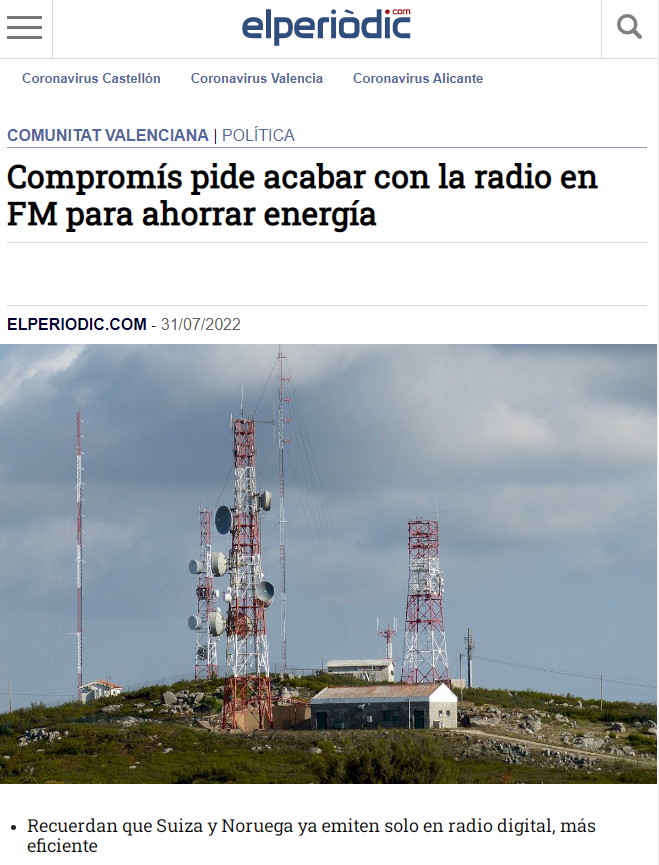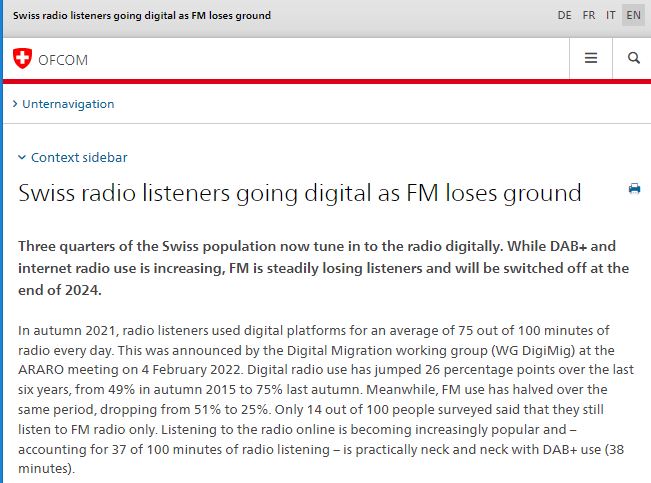
Source
To cope with a possible energy crisis, Compromís, a political party in the Valencia region, has asked the government to consider among emergency measures whether to change the broadcasting technology for radio stations. Switching to DAB, as Norway did in 2017 and Switzerland plannes to do at the end of 2024, could reduce electricity consumption by up to 90 %, according to Carles Mulet, the party’s spokesman in the Senate. But first Mulet proposes rationalizing the medium waves by employing the savings in the implementation of a DAB network and finally turning off FM. He then cites the costs declared by Radio Nacional de España after the parliamentary question submitted by the party in March 2022: between maintenance and expenses at transmitters in 2021 the medium waves absorbed 6,823,026 euros, and 6,287,503 euros were spent for the FM network.
BETWEEN SAYING AND DOING

Source
Shutting down a band takes years of planning (while the energy crisis could occur in a few months, with the arrival of winter) and if the transition is not well managed it can cause ratings to plummet. As was the case in Norway, where it was public radio that decided to switch to DAB (also not to renew an outdated and expensive ground network: commercial and community broadcasters are still active) and the loss of audience five years later has still not been fully recovered. Switzerland, on the other hand, is a small country that between public and private radio does not reach 200 stations but has been preparing for the switch-off for years, with advertising campaigns in favour of digital radio so much so that now only 14 out of 100 people listen only to FM. In Spain, on the other hand, there are 163 medium wave transmitters (of which 103 are public and 60 commercial) and approx. 2,500 radio stations with over 6,000 transmitters on FM, of which it is estimated that at least a thousand are unlicensed, and only a few experimental DAB radio stations in Barcelona, Madrid and in a few cities (as well as a few unlicensed private muxes).
